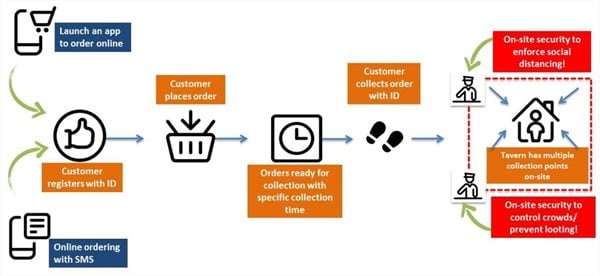






The President confirmed that these conditions had not been finalised and would be done so following further discussions with the sector.
Industry bodies like the South African Liquor Brand Owners Association (SALBA), the Beer Association of South Africa (BASA) and VinPro have been engaging with Government to develop practical trading proposals that will support Government’s Covid-19 objectives.
Vinpro CEO Rico Basson said players in the alcohol industry have been operating for more than eight weeks with zero income revenue but had remained committed to ensuring the industry gets back on its feet.
“An estimated 117,600 jobs have been lost throughout the industry and 13% of the craft beer sector is in the process of shutting up shop, while the wine industry is in severe distress. As an industry, we are willing to participate in consultation with government to provide proposals that help to reopen the alcohol industry further and begin to reconstruct the country’s economy to protect the livelihoods of one million people employed throughout the value chain," he commented.
Commenting on the opening up on the sector, Distell CEO Richard Rushton said: “We welcome the move by Government to allow the alcohol industry to return to responsible trading. The alcohol industry currently contributes to nearly a million jobs along the value chain, and supports nearly 800 small and medium enterprises. We are working with Government and providing input on the draft proposals.”
Distell, which is part of SALBA, said that its two areas of concern are the unintended consequences of restricted trading that result in overcrowding, and continue to incentivise illicit trade. Secondly, it wants to ensure the economic inclusion of taverners who are currently excluded from transforming to off consumption outlets.
BASA CEO Patricia Pillay said the industry had made a strong argument for government to especially grant off-consumption trading licenses to the licensed taverns as well as the microbreweries. “We want taverns and microbreweries to be able to trade legally and safely."
In India, where after a 6-week ban on the sales of alcohol, similar decisions were taken to open up with restricted trading which lead to over-crowding and fighting at outlets. Distell said in a statement that this outcome would be counterproductive to strict safety protocols and Government’s overall Covid-19 objectives.
Illicit trade has also seen a dramatic rise since the ban, which also may continue should trading be banned over the weekends when customers typically consume alcohol.
Industry associations have presented several proposals to ensure safe off-consumption trading of taverns. These solutions include safety protocols for trading, including e-commerce, and also addressed transmission risks across the value chain and the safety of the workforce, suppliers, retailers and consumers.
One of the solutions include a ‘click and collect' model which has been developed with taverns to ensure social distancing measures are followed, in the same way that traditional restaurants will be allowed to operate.

The taverner associations have committed to ensuring adherence to health and safety regulations, as well as social distancing at all times. This forms a part of the industry’s educational and training initiatives aimed primarily at the 34,500 tavern owners to ensure they provide a safe environment for customers in which to trade.
Part of the support for taverns includes supplying the free personal protective equipment packages, including sanitisers, masks, gloves, as well as education and training material to meet strict Covid-19 safety protocols.